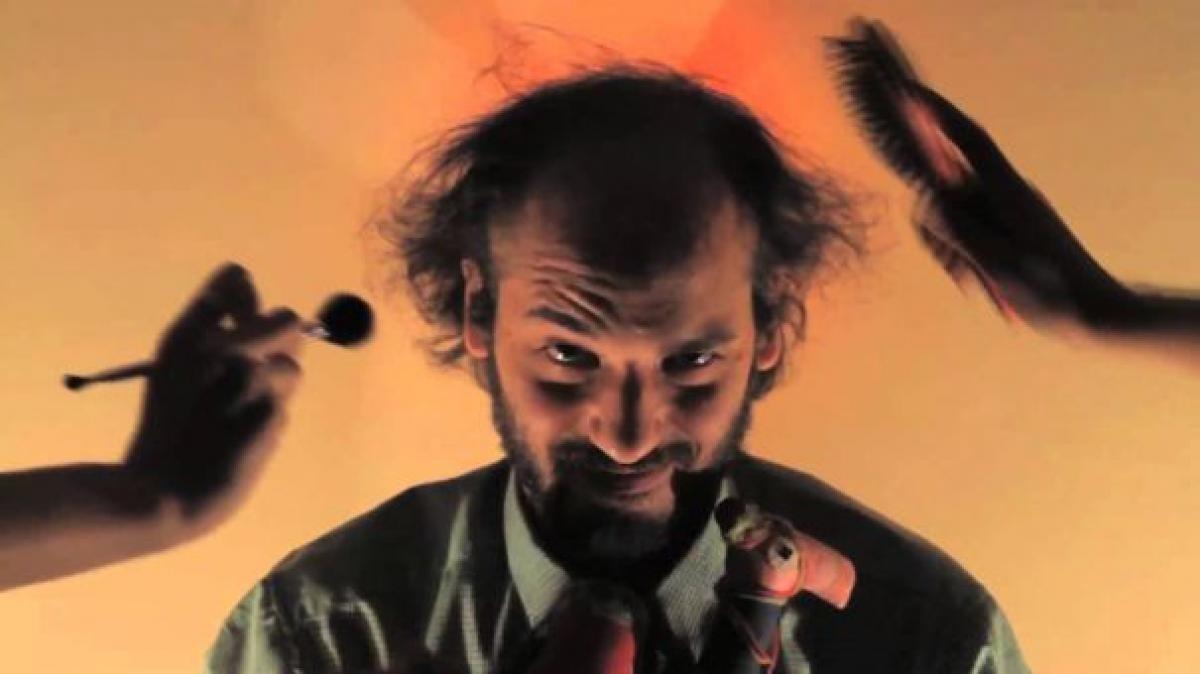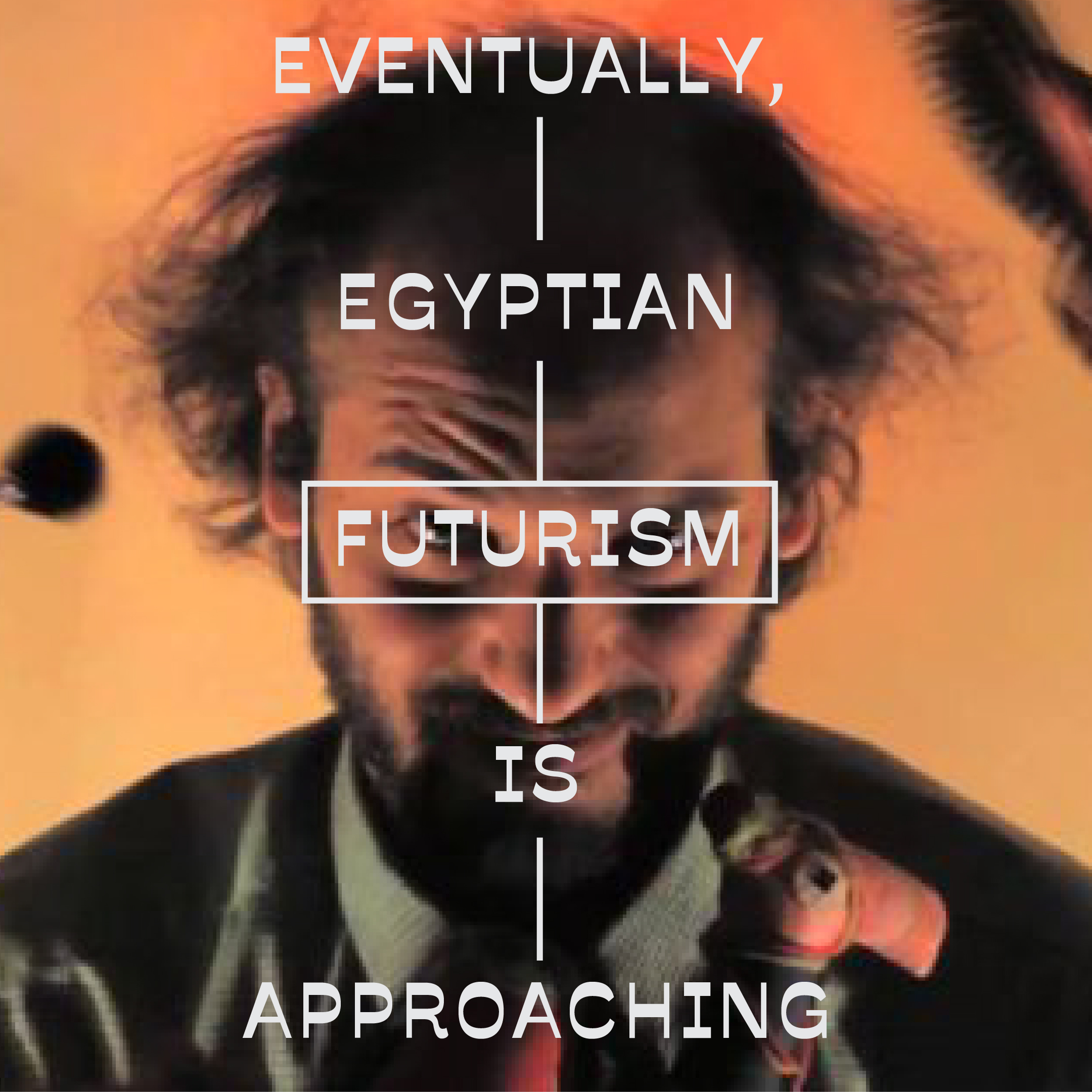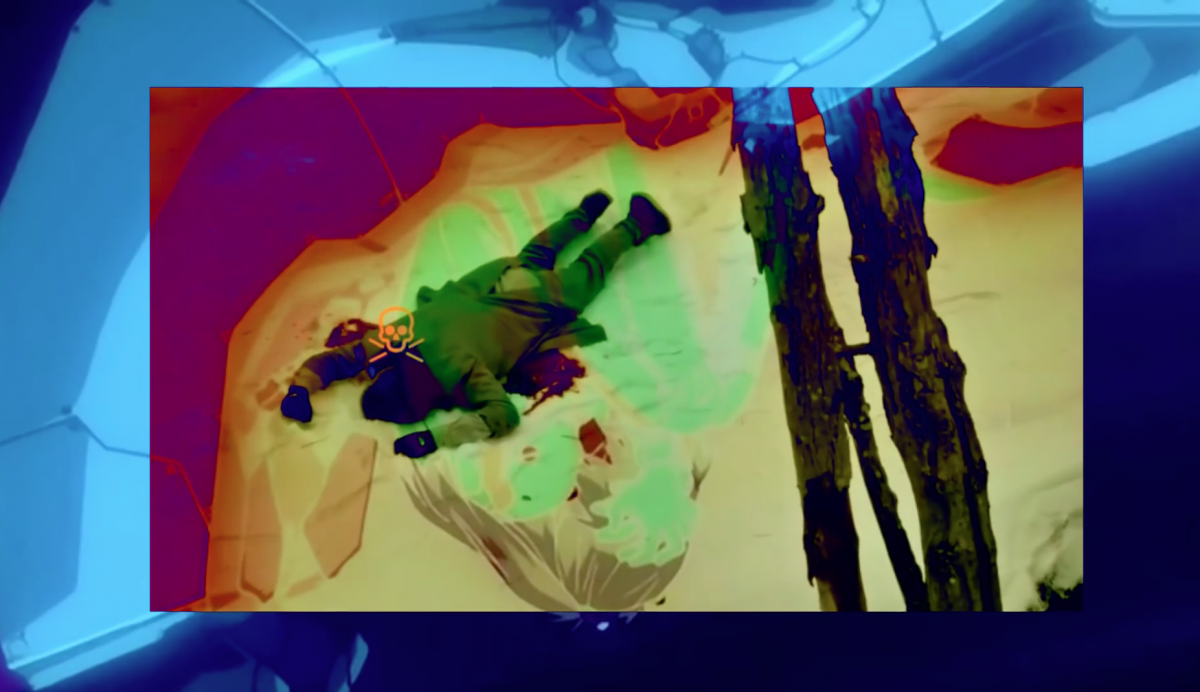
Ambassador of Cairos Underground
Tamer Abu Ghazaleh is one of the key figures of Egypts independent music scene. While on tour with his band Alif, Norient caught him in Berlin to talk about curating music, cha’abi and egyptian futurism.
Born in Cairo to Palestinian parents in exile, Tamer Abu Ghazaleh started picking up instruments as a toddler. After studying music in Ramallah, he is now based again in Cairo where he started the Eka3 platform for independent music and its spin-off label Mostakel. The label is home of artists such as Maryam Saleh, Yacoub Abu Gosh, El Morabba3, as well as his own musical endeavors. His album Thulth is now available in Europe on Mostakell via Crammed Discs. Before he is about to come on tour with the Thulth material, Tamer visited Berlin as a part of the all star line-up Alif, and, before sound check, sat down to talk with Eric Mandel about Thulth, Alif, Mostakell, the Egyptian music scene and independent music production in times of rapid political change.
[Eric Mandel]: How did Alif come together?
[Tamer Abu Ghazaleh]: It was put together in 2012. All the individuals have their own projects and their own music, and we decided it was a good idea to join hands and try to do something together. After a couple of residencies we liked what we heard and decided to continue as a band. It includes myself, Khyam Allami, an oud musician and Maurice Louca, who is an electronic musician. Khaled Yassine is a percussionist and drummer and Bashar Farran is our bassist. We released an album last year, titled Wherever it Falls.
[EM]: Is it an Egyptian band?
[TAG]: No it’s from all across the region. I am from Palestine, Maurice is from Egypt, Bashar and Khaled are Lebanese and Khyam is Iraqi-British. That was the main idea, to think in a borderless way about who would we like to play with. That’s partly good, because you can choose whoever comes to your mind, but also bad because you don’t get to meet a lot, you have to do a lot of logistics to have a residency or shows, and even in our own countries it’s difficult, we need to book flights to do a show in Egypt or Lebanon.
[EM]: I understood that you work in Lebanon quite regularly. How come that for decades now there is so much musical exchange between Egypt and Lebanon?
[TAG]: I think, historically speaking, in the last 60 years, the cultural hubs in the Arab region were Cairo and Beirut, not only on the music side, but generally in culture, in arts, even in media. Many of the regional TV stations are either based in Lebanon or Egypt. I think that’s a key to the kind of work between musicians from these two countries. Now, very recently, a lot of other countries are picking up in this kind of cross-collaborational work between countries, including Jordan, Palestine, Tunisia, and Morocco. With the bigger population getting very internet literate it has become very easy to get access and learn about musicians in Morocco when you are in Cairo. But until ten years ago this kind of ties existed mainly between Lebanon and Egypt, maybe due to the media focus in those two countries.
[EM]: How did the political changes and turmoil in Cairo affect the music scene?
[TAG]: It depends on the kind of music you play, the kind of art you work with. The independent sector is generally always going through ups and downs in Egypt, mainly because there is no stable funding. The main part, the private funding goes to either commercial music or traditional pop, while the public funding goes to specific government entities. The independent sector is operating extremely independently. But there is a huge audience in Egypt, if you throw any kind of concert, even if it is extremely experimental music, you get hundreds of people, because people want to listen to new stuff all the time. But still it’s not easy at all! The venues are expensive, because they are used to the commercial model. So you don’t have enough independent venues. You don’t have cheap ways to hire equipment or backline. So the structures in the scene are not up to the needs of the independent sector.
[EM]: You set out to create your own platform for independent music, Eka3.
[TAG]: Eka3 was founded as an incubator for music businesses. We started it in 2007 as a label, but then we noticed that everything else was missing. When you released an album, you didn’t have a distributor, when you distribute, you don’t have a promoter, when you promote, you still don’t have a tour manager ... everything was missing for an independent scene. So we ended up being an incubator to actually push new business models into the independent sector, to create stable business models that can sustain themselves afterwards as companies on their own. That sounds big, but it all happened on a very tiny scale. Part of that is Mostakell, which is a label, but there is also a booking agency called Almoharek, a publishing company called Awyav, and a music reviews website called Ma3azef.com and so on.
[EM]: I came across Mostakell through Maryam Saleh. To my surprise, it turned out less electronic than, say, 100 copies, it is closer to your sound, a mix of skills, fine production and prolific singer-songwriters.
[TAG]: When Mostakell started 9 years ago you had a very dry kind of scene in the region. Doing alternative or any type of nontraditional music was something new. So we used to produce anyone and everything we could, whatever it was, as long as it was alternative to the traditional model, in order to have this movement going. Because first you need that movement, and then you can start being picky and decide what exactly to release. Over time it became clear that the label is working on – very similar to what you described – a singer songwriter approach. Maryam Saleh & Zeid Hamdan do a mix of trip hop and indie pop, and Elmorabba3 from Jordan do psychedelic rock, so it’s many different things. What we are looking for in general is to release music that says something new, musically speaking, to crowds in the Arab region and all over the world, and this can be done in a million genres.
[EM]: Let’s talk about your own career, which you apparently started as a prodigy. Your first release contains music you recorded between 5 and 15.
[TAG]: (Laughs) Yeah. They tell me that when I was two years old I started singing in the Choir that my mother had founded in Cairo. And all throughout the years I started picking up instruments and trying to play and coming up with music which was my first trials as a composer. And every couple of songs I would record one. At the age of 15 I compiled all the recordings and put out an album (laughs). You can hear my voice change throughout the recordings as I grew up.
[EM]: But then you went to see a teacher. For that, you went to Ramallah. How did you manage to get there?
[TAG]: It’s a complicated issue, but it’s mainly related to my parents, who were exiled in Cairo. Then came the Oslo agreement. My mother is part of the general assembly of the PLO, and when they held a PLO meeting in Palestine, she managed to get there. Once she was there, she issued all the required papers to be able to stay there. So this is how all the family moved back to Ramallah. It wasn’t easy but it happened. At Ramallah I studied with Khaled Jubran at Edward Said Conservatory – all aspects of theroy, composition, history and so forth.
[EM]: What are your major instruments?
[TAG]: My main instruments are oud and the bouzouk, which is quite similar to play. I like to play a lot of other instruments, but I can’t say I actually play them well, I play them more out of passion. When it is more complicated, it is better to hire someone who knows what he's doing.
[EM]: Thulth has a pretty wild mix. There are styles, quotes even, from all over the place. The songs are not as linear as your regular folk song for sure. So how do you go to work?
[TAG]: I guess in the album itself there were several phases as the songs were composed over nine years. In the first phase I was specifically more inclined to experiment with song structures. I was learning from songs like «Bohemian Rhapsody» which triggered my interest in the idea that a song doesn’t need to be in a predefined structure ... it doesn’t need to fit anything! So I was playing with that. When I felt in the second verse that I need to go somewhere completely different, so I went somewhere completely different, to see what happens. I think in the later phases it is more of the type of composition that has a more coherent flow as the earlier ones. This type of songs went towards experimentation in sound and in composition itself. I think there is a different approach of experimentation in each couple of songs.
[EM]: Do they develop while you are recording, are you recording bits and arrange them or do you really sit there with an oud and a piece of paper?
[TAG]: That changes from one song to another. In the old days I used to sit and actually write the score. With this album it’s a mix of waking up with a musical theme in my head, playing it with the oud, and continuing this theme with something else, and after two days continuing with something different. And then there is another way, when I find lyrics I really love by another poet or writer... lyrics that stick in my head. After a couple of days I find myself singing them with a tune. It really depends on the mood of the day.
[EM]: On Thulth you also adapted classic poetry…
[TAG]: Yes, there is an ancient Arabic poem, Hob, by Qays ibn al-Mulawwah. This is considered very traditional, and taught in Arabic school. It was quite an entertaining process to break all the traditional poetic rhythms, to dissect it and apply it to the rhythm of the music. Some people who like the more traditional language extremely hate this songs because of that.
[EM]: Interestingly, with Maryam Salehs record Mesh Baghanny, which you produced, the method seems quite similar, but centered around her voice, personality and lyrics.
[TAG]: This came together because I like to try out things that I am not so good at, in order to learn what they are. Now if I would produce something with an essential rock sound, I would do it differently. But at the time we enjoyed the experience of seeing what would happen if we take this rock sound but with a lot of folk influences from Egypt. Maryam has this very Egyptian, screaming tone. That was an experiment also.
[EM]: I found Maryam from a rap/hip hop angle. I can imagine that just like in Berlin, instead of one scene there are many layers of interest. Like hip hop, which is known to be huge, right?
[TAG]: Actually the biggest thing in Cairo, in Egypt, is the cha’abi, the mahraganat, this is the real underground of Egypt. This happens in a lot of areas, [where] they have their own way of doing things. No outsider could go and promote an event in these areas. So, there are very particular scenes. And there is a big hip hop scene, too, but the problem is that much is happening on the internet only. There are a couple of artists who play live and have a big following but it is not yet a big enough scene, in Egypt specifically.
[EM]: Cha’abi was picked up in Europe by DJs. Which I think has a lot to do with the fact that – being rooted in folk music – it sounds distinctively Arabic. I’ve heard from Cairo producers who don’t want to sound Arabic at all...
[TAG]: I think it is related with having many cultures and subcultures in this country. The techno producers don’t want their music based on anything traditional from the country. It is their way of doing things; they are not connected to the cha’abi culture. If they would now pick up on Arabic elements it would be unoriginal.
[EM]: When Techno became big in Berlin and in the West in general in the early 90s it was in every way associated with futurism. It was the sound of what is coming. When you look at the musicians we were talking about in Cairo or Beirut, how would you relate the music to...
[TAG]: ... what is coming? (laughs)
[EM]: And what has to be invented, what has to be thrown off to create a vision of the future, dystopic or utopic. Is there an egyptian futurism?
[TAG]: That’s a very difficult question. I am not sure. And that is a problem. I think the main issue there is: because the music industry in general is traditional in its approach to pop and Arabic music. This has cut off the Arabic music scenes from the rest of the world in the sense that you didn’t get releases from abroad. You didn’t know what was happening ... except now that there is internet. So it is very recent, the past decade, that people are starting to know what is happening all over the world once it is released and not years later. And I think this is causing a change towards a more futuristic approach to music, but it is not easy to define right now. It´s still too early.
Biography
Shop




Published on September 07, 2016
Last updated on March 11, 2024
Topics
Digitization means empowerment: for niche musicians, queer artists and native aliens that connect online to create safe spaces.
Music and art that dealing with the unfinished and undefined.
About fees, selling records, and public funding: How musicians strive for a living in the digital era.
From westernized hip hop in Bhutan to the instrumentalization of «lusofonia» by Portuguese cultural politics.
From art exhibitions to djing to personal Instagram feeds, we look at curation from multiple perspectives.
Snap

